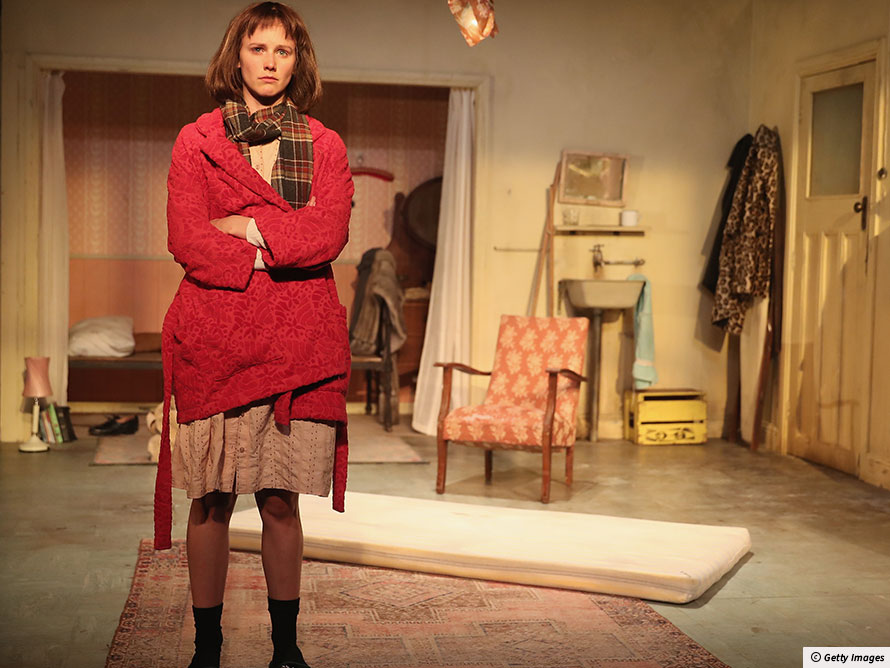Shelagh Delaney’s classic kitchen sink drama, A Taste of Honey, shocked audiences when it was first performed in 1958. The honest and unsparing depiction of the life of Jo, a young working-class woman who finds herself pregnant and alone in Salford, greater Manchester, still resonates today. As we see into the lives of Jo and her mother Helen, we understand the insecurity and precarityThe state of being uncertain. Often used to talk about living an uncertain or precarious existence, due to not have a stable job or income. that shapes their characters, and the callousness of a world that judges women for the choices they make. When Helen leaves Jo to marry her boyfriend Peter, we see Jo’s search for some kind of stability. After her boyfriend leaves her pregnant, she moves in with Geof, a gay art student, who offers her more support than she receives from her own family. But when Helen returns and drives Geof away, before abandoning her one more time, we see a harsh truth; the world leaves many people alone.
A Taste of Honey

Glossary
Precarity - The state of being uncertain. Often used to talk about living an uncertain or precarious existence, due to not have a stable job or income.
Precarious - Unpredictable; uncertain.
- Someone who is important due to their rank or job.
